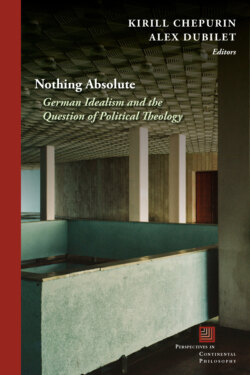Читать книгу Nothing Absolute - Группа авторов - Страница 8
На сайте Литреса книга снята с продажи.
Introduction
ОглавлениеImmanence, Genealogy, Delegitimation
KIRILL CHEPURIN AND ALEX DUBILET
Across its recent renaissance, political theology has remained a notoriously multivalent term, a contested terrain defined by wide-ranging political and theological commitments. What political theology brings conceptually into play, what is theoretically at stake in this interdisciplinary site of inquiry, and what genealogical resources are pertinent to it—all of this is decided on anew with each political-theological investigation. New theoretical engagements repeatedly redraw the entire problematic: the debate is as much within a constituted field named political theology, as it is about the very existence and coherence of the field as such, as well as the status, scope, and significance of its fundamental concepts. There seemingly is no neutral space one could term political theology, concepts being always polemical and neutral space being always only a neutralized one. This instability of definition has made the field at once fecund and elusive, generative and highly contested. Why is the invocation of the name political theology significant today? And why invoke it alongside the post-Enlightenment—and also highly generative and debated—movement of thought known as German Idealism?
